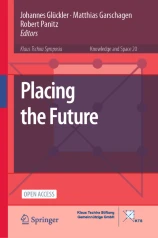Abstract of the chapter
Over the past decade, postgrowth/degrowth debates have seen an increasing uptake in research on regional (economic) development. Against this backdrop, this contribution aims at discussing their ontological, conceptual, and methodological implications for economic geography and beyond. It first situates growth-criticism in the broader context of social and spatial inequalities, food crises, climate change, and environmental justice, before assessing its potential ramifications on prevailing theories, models, and methodological perspectives. Taking two key concepts as illustrative examples (Regional Innovation Systems—RIS, and Global Production Networks—GPN), it examines how economic geography implicitly adheres to prevailing growth imperatives. Introducing the notions of the Foundational Economy as well as the Economy for the Common Good, the article finally discusses how economic geography can conceptually engage with the challenges of a socio-ecological transition and the prospects of a postgrowth-oriented future.
About the book
This open access book offers a fresh perspective on the uncertainties of the future that humanity faces. Leading scholars from the fields of future studies, planning, geography, history, sociology, design, and the humanities sensitize for the intricate role of geography in building knowledge to anticipate probable, to imagine alternative, and to enact desirable futures. Part I, knowing the future, explores strategies for anticipating possible futures, such as foresight methods, scenarios, and guiding images. This section underscores the importance of cultivating future consciousness to confront societal denial of looming threats like environmental crises. Part II, envisioning the future, delves into various ways societies imagine their futures, exploring topics like the future of food, post-growth economies, extra-terrestrial futures, and even human self-extinction to reveal how futurist scenarios can inform decision making and proactive planning. Part III, enacting the future, focuses on the performative aspects of futuring. The authors in this section examine practices—such as designing, performing, advising, and governing—that are aimed at transforming desired futures into present realities. As part of a series on the interdisciplinary nexus between knowledge and space, this book is an essential resource for researchers, policy makers, planners, students, and practitioners in the fields of sustainability, future studies, regional development, and governance.
Schulz, C. (2025). Economic Geographies of Post-Growth. In: Glückler, J., Garschagen, M., Panitz, R. (eds) Placing the Future. Knowledge and Space, vol 20. Springer, Cham. p. 167-183.
